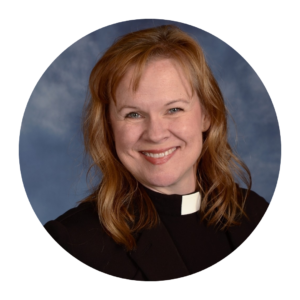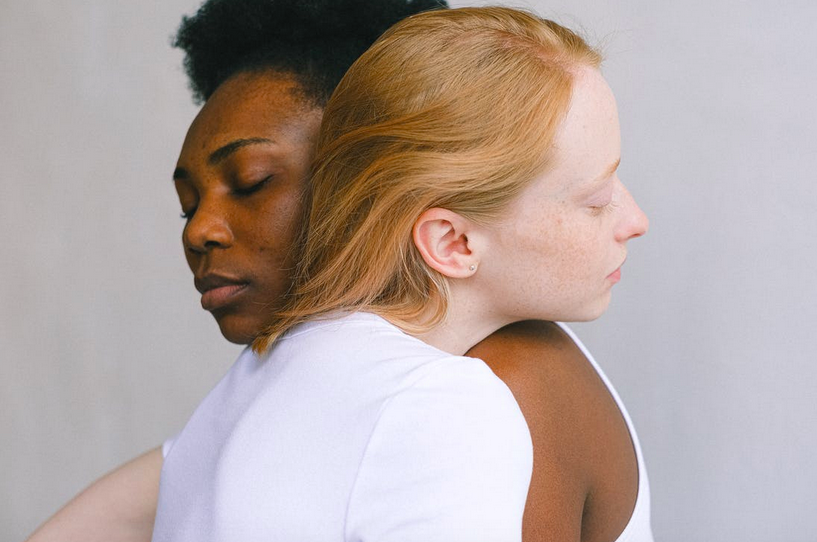When What We Need is Comfort: I really love blankets. When I was a child, I kept my old, yellow sleeping bag long after it was faded and worn. I was an anxious child, having lived through my parents’ divorce, severe financial problems, and the loss of our home. But when I went to bed at night, the unzipped sleeping bag on top of me reminded me that I was wrapped in warm goodness, and everything was going to be all right.
In high school, when my first boyfriend broke up with me, I crawled under the covers of my bed, reassured that things were not as bad as they seemed. When I began dating the teenager who would someday be my husband, I loved how his family members would each grab a lap blanket to watch movies at night. I could feel secure in a family like that. I have raised my own children the same. There is rarely a movie we watch without blankets on our laps and legs. I even bring a small blanket to movie theaters!
In my home today, I cherish the ultra soft, red blanket with the reindeer pattern, a gift from my sister, which goes on my bed every Christmas season. I curl up to read wrapped in a “tortilla blanket” (really, it is round and looks like a cooked tortilla!), a gift from my brother. I feel close to my mom, who has physically left this earth, but whose cable knit Irish wool blanket, a handmade gift from her mother, now lays at the bottom of my bed and cures any stress in me. This blanket is so heavy, it truly feels like my mom is hugging me, and passing on to me her spiritual strength. I cherish the quilts from my grandparents and my mother-in-law. I don’t have this in my possession, but I recall my Dad’s scratchy Army blanket. I didn’t prefer the feel of it when I was a small child, but I loved the blanket still, because Dad’s scratchy stubble felt just like it.
The best blanket is, of course, the down-filled comforter. It is the perfect combination of warm and cool, sturdy and soft, classic and modern. My comforter might be one of my best friends. Maybe it’s the name. Comforter. What a perfect word.
In my field of religion and theology, I like to study the many names people have for the Holy, the Divine, the Source of all being. In my spiritual tradition of Christianity, we most often use the word “God.” Christians understand God to be the three-in-one Trinity: Creator (Father/Mother), Jesus (Son/God Incarnate), and the Holy Spirit. One of the names of God, primarily the Holy Spirit, is Comforter. God is described as comforting the people all over the Bible.
For example:
“I, even I, am he who comforts you. Who are you that you fear mere mortals, human beings who are but grass?” (Isaiah 51:12)
“Blessed are those who mourn, for they will be comforted.” (Matt 5:4)
“Praise be to the God and Father of our Lord Jesus Christ, the Father of compassion and the God of all comfort, who comforts us in all our troubles, so that we can comfort those in any trouble with the comfort we ourselves receive from God.” (2 Corinthians 1:3)
“Never again will they hunger; never again will they thirst. The sun will not beat down on them, nor any scorching heat. For the Lamb at the center of the throne will be their shepherd; he will lead them to springs of living water. And God will wipe away every tear from their eyes.” (Revelation 7:16,17) [This one doesn’t explicitly say the word “comfort”, but the message of comfort is certainly there.]
The Bible is full of many more passages just like this. God is our Comforter.
Too often, people envision God as a task-master. God is seen as the one who demands obedience, doles out punishments, and constantly insists that we become better than we already are. It is true that the spiritual life does become richer and fuller when we open ourselves up to challenges. God can most definitely guide, ask hard things from us, and even correct us from time to time. God wants each of us to thrive. But that is not all that God is – and the God who comforts is every bit as much real as the God who challenges.
Sometimes we don’t need a challenging God. At the end of a long day, when you are worried about your job or health, or if you are going through marital problems, or if the kids are pushing your buttons, or if the pandemic, politics, and general scary nature of the world seem too much, we need something else. We need comfort. We instinctively know this, so many of us turn to alcohol, food, friends, or TV to comfort and numb the pain. The trouble is – we can’t rely on these things, sometimes they cause more problems than they solve, and numbing out is a far cry from true comfort and peace.
Instead, I encourage you to connect with your spiritual self, which is actually not a small segment, but the largest part of who you are – your truest self – and accept comfort that will satisfy, with no negative side effects. The Holy, the Sacred, the Divine, God, whatever name you use, moves in and around us – as has been testified to from every population that has ever been on the planet. We swim in love, even when we cannot see it. This love that is your Source and your Destination also is your Friend, your Guide, your Challenger, your Expander and, blessedly, your Comforter. You deserve to know that and to wrap yourself up in this kind of grace.
So put the challenges down for a while. Go grab your favorite blanket, maybe even one that has a story of love attached to it. Settle in to watch a good movie or read a good book, and feel how safe and held you are in this moment. Remind your spirit of the sacred and profound gift of comfort. Everything is going to be okay.

STEPHANIE LAPE
Stephanie Lape is a pastor in the Evangelical Lutheran Church in America (ELCA).
She holds a Master of Arts degree in Transpersonal Psychology (the psychology of religious experience) from the Institute of Transpersonal Psychology, and a Master of Divinity degree from Luther Seminary. A long-time professor of comparative religions and former campus minister, she now serves as pastor at Eden Lutheran Church in Riverside, California.
Stephanie speaks and teaches on matters of spiritual and psychological development, biblical studies, the enneagram personality tool, and comparative religions. She is an active advocate for interfaith and ecumenical studies. She has taught classes on major religious movements in churches, schools, and city programs, while also leading tours and guest speaking at mosques, synagogues, and temples. Stephanie is honored to be a speaker at the 2021 and 2023 Parliament of the World’s Religions.
She also loves to write. Stephanie is a contributing author for Living Lutheran Magazine and author of Beckoned: Hearing God’s Call to Deeper Faith, which is both a travelogue of her own winding spiritual journey, as well as a guide to help people discover their own path. She lives with her husband and two children in Southern California.




3 Responses
Such a comforting article. Thank you Stephanie. Thanks for reminding me that comfort is available no matter what we as going through. 🙏🏼Kelly
Thank you for your kind comment Kelly! We love Pastor Stephanie’s articles. They are like a warm, comfortable hug 🙂
With Gratitude,
Jen (PLW founder)
Thank you so much for your comment, Kelly! I’m glad the article spoke to you. ❤️ Stephanie